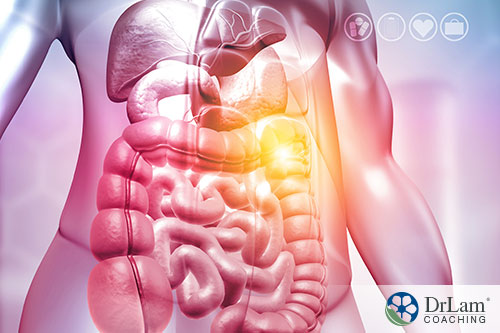 There are a lot of diets out there that promise to improve your health in a variety of ways. When you have Adrenal Fatigue Syndrome (AFS) changing your diet is important in reducing stress and boosting your recovery. However, it is important to do your research before you start a new diet to ensure that it will have the benefits you want without harming your health. So, if you are thinking of trying the GAPS diet to improve your AFS, this is what you need to know about it.
There are a lot of diets out there that promise to improve your health in a variety of ways. When you have Adrenal Fatigue Syndrome (AFS) changing your diet is important in reducing stress and boosting your recovery. However, it is important to do your research before you start a new diet to ensure that it will have the benefits you want without harming your health. So, if you are thinking of trying the GAPS diet to improve your AFS, this is what you need to know about it.
The GAPS diet, or Gut and Psychology Syndrome Diet, is designed to improve gut health using food to manage troublesome symptoms and help with the gut repair. This diet claims that a great many disorders both physical and psychological are caused by what is known as leaky gut. This occurs when the lining of the small intestine becomes damaged and allows food particles and toxins to leak through the gut lining. These particles then flood the bloodstream, acting as a toxin. The GAPS diet claims to help with neurological disorders such as autism as well as psychiatric and behavioral disorders. However, there is absolutely no evidence that this diet will benefit these disorders, so make sure you seek out effective and expert help before embarking on such diets.
The GAPS diet goes through several phases that are meant to eliminate damaging foods and gradually improve the health of your intestinal lining. The first phase and perhaps the most important is a strict elimination diet that contains several stages. The elimination phase is based on a very small and strict list of foods that encourage gut healing and decrease inflammation. This phase, however, has a few disadvantages because it can cause digestive symptoms such as diarrhea, which will start to settle as inflammation decreases. Once these symptoms settle, other foods can be added back to your diet.
The GAPS diet is highly personalized and individual. Each person moves through it at their own pace entirely depending on their symptoms. Once the introduction phase is complete, the full GAPS diet can be incorporated, which prohibits all sugar and starches and contains a great deal of fermented food. This type of diet should be adhered to for at least two years and should promote good gut health and a healthy balance of bacteria in your gut.
The GAPS diet includes a wide range of food that can be eaten at different phases and at different stages throughout the diet. This includes:
Once the introduction phase is over, other foods can be added to your diet. These include
So, the question arises, is the GAPS diet healthy? It is a fairly new diet and there are no studies to support its effectiveness. This means you should be very careful and only implement the system with the help of a trained medical professional. There are several troubling issues with the GAPS diet, including:
So, if you experience anxiety or depression or other serious psychological or neurological disorders, then it is important that in addition to thinking about making dietary changes, you get the right kind of professional help for your situation.
Another issue with the GAPS diet has to do with AFS. Incorporating this diet may help address symptoms of AFS because eating a nutritious, healthy diet is vitally important to AFS recovery. However, it is crucial that you make drastic changes like this slowly when you have AFS. Even healthy changes can cause stress, which will only worsen your AFS. So, consult a trained professional who is an expert in AFS and the problems it can cause before you make the transition to the GAPS diet.
 When you have AFS, the health of your gut is often one of the first parts of your body to go out of balance. The GAPS diet may be able to help with this, as long as it is right for your body and followed carefully and with respect to your physical condition. When you have AFS, your gut health is impacted by a combination of factors including high-stress levels, a poor diet, inflammation, and bad bacterial balance. Stress is a problem that the human body is designed to cope with. Your body has what is known as the NeuroEndoMetabolic (NEM) stress response which activates when you are under stress. But when you experience chronic stress, this system can start to malfunction.
When you have AFS, the health of your gut is often one of the first parts of your body to go out of balance. The GAPS diet may be able to help with this, as long as it is right for your body and followed carefully and with respect to your physical condition. When you have AFS, your gut health is impacted by a combination of factors including high-stress levels, a poor diet, inflammation, and bad bacterial balance. Stress is a problem that the human body is designed to cope with. Your body has what is known as the NeuroEndoMetabolic (NEM) stress response which activates when you are under stress. But when you experience chronic stress, this system can start to malfunction.
The NEM stress response relies heavily on the adrenal glands to excrete cortisol, which then prepares the body to react to the cause of the stress. But this system is only designed to be active for short periods. It activates, helps you survive the cause of the stress, and then shuts down. So, when you experience chronic stress over a period of months or years, this system becomes overworked and all the circuits in the body can go out of balance. This is what happens when you have AFS and it will affect every system and organ in your body, including your gut.
The gut becomes unbalanced because of a variety of issues when you have AFS. Firstly, stress and a poor diet often lead to digestive and elimination problems such as constipation or diarrhea. These symptoms can often disturb the balance of good and bad bacteria in the gut, resulting in an overgrowth of bad bacteria. Nutritional deficiencies because of a poor diet or poor digestion can also prevent the gut from getting the nutrients it needs to function properly. With the rise in the inflammation levels in your body, these problems in the gut get worse.
Additionally, the situation becomes problematic as AFS progresses to include more circuits in the body. The microbiome is an integral part of the neuroaffect circuit as well as the inflammation circuit. And as these circuits degrade, the health of the gut deteriorates over time. It is therefore vital to have strategies to improve the health of the gut and the associated circuits. In this case, the GAPS diet, can be also beneficial.
The gut, brain and microbiome are very closely linked together. They make up what’s known as the gut-brain axis, so what affects one system will naturally affect the others as well. That is why it is so important that you improve your gut health when you have AFS, as poor health will have a noticeable and negative effect on the health and functioning of your brain. The health of your gut will affect your thoughts, emotions, memories, and neurotransmitter (NT) levels. NTs are the chemical messengers that your brain uses to communicate with the rest of your body and three-quarters of them are produced in the gut. So, when your gut is unhealthy, it will markedly affect how your brain communicates and functions.
Improving your diet is one of the best ways to improve the health of your gut. This will have the following effects:
Incorporating the GAPS diet may be able to produce these effects. However, as stated earlier, it is vitally important that you get expert advice before you make this change. The last thing you want when you have AFS is to increase your stress levels, cause more negative symptoms, or worsen your overall health condition.
 If you struggle with symptoms relating to poor gut and brain health because of AFS, then the GAPS diet may help. This eating plan will help to restore the natural balance of your stomach and the bacteria it contains, which will naturally boost your brain health. If you consider trying this diet, do it carefully, so that you avoid any negative responses from your AFS. This will help you to get a good start on the path to AFS recovery.
If you struggle with symptoms relating to poor gut and brain health because of AFS, then the GAPS diet may help. This eating plan will help to restore the natural balance of your stomach and the bacteria it contains, which will naturally boost your brain health. If you consider trying this diet, do it carefully, so that you avoid any negative responses from your AFS. This will help you to get a good start on the path to AFS recovery.
© Copyright 2020 Michael Lam, M.D. All Rights Reserved.
The GAPS diet is designed to improve your gut health by eliminating harmful foods and encouraging the growth of beneficial bacteria. This will not only improve your digestion and elimination; it will also help to boost your brain function too.
